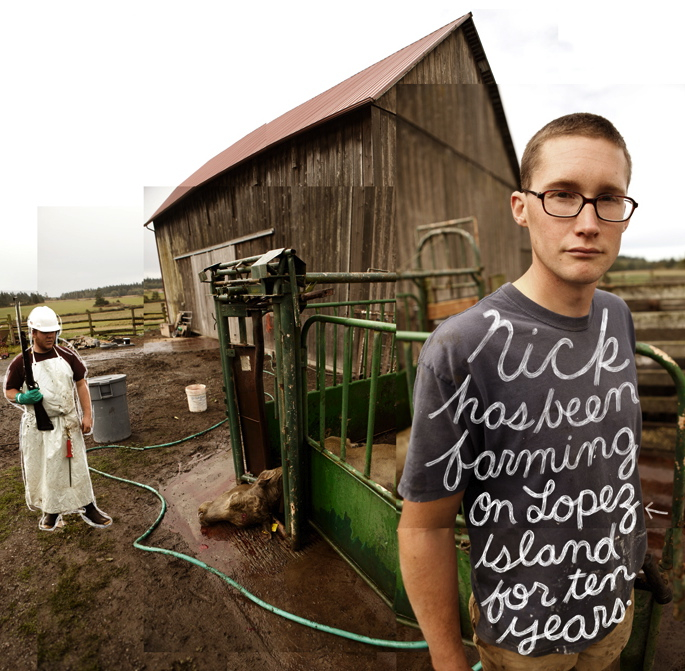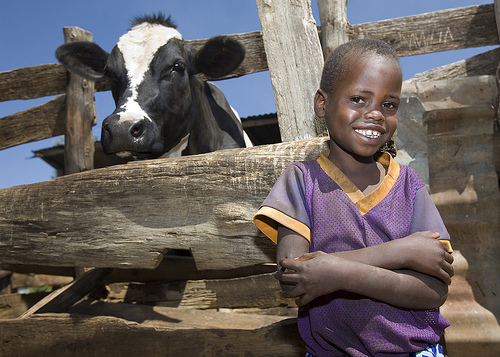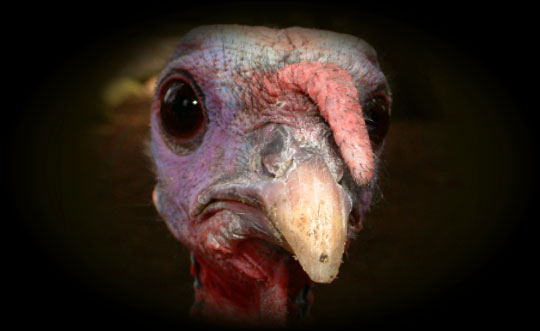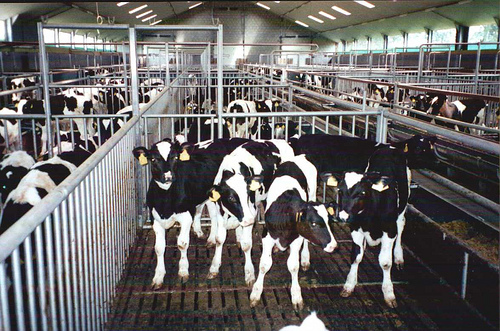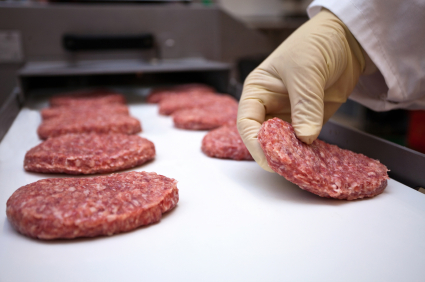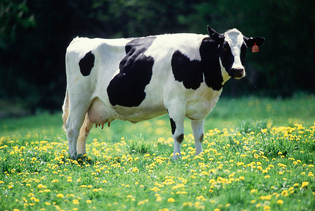livestock
-
Lexicon of Sustainability: Mobile slaughterhouse
As the meat industry has grown more consolidated over the years, most small farms have had to truck their animals hundreds of miles to have them processed. Mobile slaughter trucks are a creative solution to this challenge.
-
One day you will play a video game with a pig
As any Portlandia fan knows, ethical meat-eaters don't just want their food to be humanely raised and humanely slaughtered. They also want it to have had a happy life. And it turns out that what makes pigs have a happy life is video games. Seriously -- pigs like to snuffle at flashing lights, which is basically Galaga. Accordingly, ethical farming researchers at Wageningen University are working with designers from the Utrecht School of the Arts to develop a human/pig interactive gaming app. The game, called Pig Chase, is designed to relieve some of the tedium of being a pig on a farm -- bored pigs aren't just a bummer for Portlandia food snobs, they're also more cranky and aggressive.
-
FDA regulates 0.3 percent of antibiotics in livestock
So if you were the FDA, and you wanted to regulate the feeding of antibiotics to livestock -- which you don't, but bear with me -- there would be a couple of ways you could go. You could regulate the ones that are the most widespread and cause the most problems. Or you could regulate the ones that a tiny and decreasing number of people use in the first place. The second one is less effective, but it's easier! So that's what the FDA is doing.
The agency has announced that it will ban the agricultural use of cephalosporins, a class of antibiotic used in humans to treat pneumonia and certain infections. That's a good step towards keeping factory farms from becoming breeding grounds for antibiotic-resistant microbes -- or anyway, it would be, if it weren't for the fact that effectively zero percent of farms use cephalosporins in the first place.
-
Livestock handouts in Africa: More complex than you’d think
Ankole-Watutsi cows are quickly being replaced in Rwanda by high-producing breeds. While the latter are an important strategy to combat hunger, the author worries about the loss of a cultural icon, not to mention biodiversity.It’s the giving time of year again, and if you feel like everyone in your life already has too much stuff, […]
-
Don’t look now, but some turkey has antibiotic-resistant superbugs
Not to put a damper on your Thanksgiving or anything, but there are two new studies showing that drug-resistant bugs like MRSA are showing up in farmed meat, including turkey. Farm animals get fed a cocktail of antibiotics, which can create resistant strains of bacteria. It's been hard (though not impossible) to determine whether that's […]
-
Rising Meat Consumption Takes Big Bite out of Grain Harvest
World consumption of animal protein is everywhere on the rise. Meat consumption increased from 44 million tons in 1950 to 284 million tons in 2009, more than doubling annual consumption per person to over 90 pounds. The rise in consumption of milk and eggs is equally dramatic. Wherever incomes rise, so does meat consumption. As […]
-
Killing the competition: Meat industry reform takes a blow
Four companies currently control 90 percent of all beef processing in the U.S. Photo: Compassion in World FarmingOne of the least-discussed but most promising attempts at food system reform was dealt a serious blow the other day. The USDA itself eviscerated its proposed reform to a set of rules which would have given a government […]
-
Could eating poo-burgers save the Earth?
Eat sh*t, cattle farming industry! No, literally, eat sh*t. Japanese scientist Mitsuyuki Ikeda has developed a way to make meat substitute out of "sewage mud," which is exactly what it sounds like. He extracts (bacterial) protein from what is essentially a soup of human feces, then blends it with soy protein and steak sauce to form a sort of poop patty. According to initial tests, the stuff actually tastes like beef, which raises the question: WHO THE HELL DID THEY GET TO DO THESE TESTS?
-
E-I-E-I-Oh no: Decades of antibiotics in farm animals lead to deadly superbugs
When cows kill. This article was syndicated with permission from OnEarth. Stuart Levy once kept a flock of chickens on a farm in the rolling countryside west of Boston. No ordinary farmer, Levy is a professor of molecular biology and microbiology and of medicine at Tufts University School of Medicine. This was decades ago, and his chickens were […]
